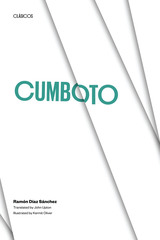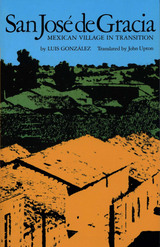
This richly orchestrated novel, which won a national literary prize in the author's native land, Venezuela, also earned international recognition when the William Faulkner Foundation gave it an award as the most notable novel published in Ibero America between 1945 and 1962.
Cumboto's disturbing story unfolds during the early decades of the twentieth century on a Venezuelan coconut plantation, in a turbulent Faulknerian double world of black and white. It records the lives of Don Federico, the effete survivor of a once vigorous family of landowners, and his Black servant Natividad, who since the days of their mutual childhood has been his only friend.
Young Federico, psychologically impotent and lost to human contact, lives on as a lonely recluse in the century-old main house of "Cumboto," surrounded by descendants of African slaves who still manage, despite his apathy, to keep the plantation on its feet. Natividad's heroic and selfless struggle to redeem his friend by awakening him to the stirrings of the earth and life about him sets in motion a series of events that are to shatter Federico's childlike world: a headlong love affair with a voluptuous black girl, her terrified flight in the face of the bitter condemnation of her own people, and the unexpected appearance, twenty years later, of their extraordinary son.
Throughout the novel runs a recurring theme: neither race can survive without the other. Black and white, Díaz Sánchez suggests, embody contrasting aspects of human nature, which are not inimical but complementary: the languid intellectualism of European culture must be tempered with the indestructible vitality and intuition of the African soul if humanity is ever fully to comprehend the living essence of the world.

Drawing on the rich resources of The Law Practice of Abraham Lincoln: Complete Documentary Edition, a DVD version of Lincoln's complete legal papers, In Tender Consideration scans the full range of family woes that antebellum Americans took to the law. Deserted wives, destitute widows, jilted brides with illegitimate children, and slandered women brought their cases before the courts, often receiving a surprising degree of sympathy and support.
Through the stories of dozens of individuals who took legal action to obtain a divorce, contest a will, prosecute a rapist, or assert rights to family property, this volume illuminates the legal status of women and children in Illinois and their experiences with the law in action. Contributors document how the courts viewed children and how they responded to inheritance, custody, and other types of cases involving children or their interests. These cases also highlight Lincoln's life in law, placing him more clearly within the context of the legal culture in which he lived and raising intriguing questions about the influence of his legal life on his subsequent political one.

Ramón Beteta was an important figure in Mexican life: politician, Cabinet member, diplomat, economist, professor, journalist. The manuscript of Jarano was found among his papers after his death in 1965 and was published in Mexico in 1966. "Jarano," the kind of broad sombrero worn by charros, was the secret nickname—partly disrespectful, partly amused, partly affectionate—which Ramón and his brother gave to their father. Except for part of the last chapter, the book is about Ramón's childhood and youth: sketches of family life, school experiences, a trip to Veracruz, and incidents of the Revolution.
Beteta brought to these reminiscences the skills of the short story writer, making superb use of dialogue, descriptive details, characterization, and mood. For a small book, the range of emotions is unusually wide, from the comedy of an evening meal to which Jarano has come home drunk to the tragedy of the indio and his wife in the chapter entitled "San Vicente Chicoloapan"—a chapter that gives more of the "feel" of the Revolution than do many longer works.

Winner, ISHS Superior Achievement Award for a Scholarly Publication, 2016
A concise legal history of Illinois through the end of the nineteenth century, Prairie Justice covers the region’s progression from French to British to early American legal systems, which culminated in a unique body of Illinois law that has influenced other jurisdictions. Written by Roger L. Severns in the 1950s and published in serial form in the 1960s, Prairie Justice is available now for the first time as a book, thanks to the work of editor John A. Lupton, an Illinois and legal historian who also contributed an introduction.
Illinois’ legal development demonstrates the tension between two completely different European legal systems, between river communities and prairie towns, and between agrarian and urban interests. Severns uses several rulings—including a reconstitution of the Supreme Court in 1824, slavery-related cases, and the impeachment of a Supreme Court justice—to examine political movements in Illinois and their impact on the local judiciary. Through legal decisions, the Illinois judiciary became an independent, co-equal branch of state government. By the mid-nineteenth century, Illinois had established itself as a leading judicial authority, influencing not only the growing western frontier but also the industrialized and farming regions of the country. With a close eye for detail, Severns reviews the status of the legal profession during the 1850s by looking new members of the Court, the nostalgia of circuit riding, and how a young lawyer named Abraham Lincoln rose to prominence.
Illinois has a rich judicial history, but that history has not been adequately documented until now. With the publication of Prairie Justice, those interested in Illinois legal history finally have a book that covers the development of the state’s judiciary in its formative years.

The village of San José de Gracia is not mentioned in any history of Mexico, nor is it referred to in any of the annals of the state of Michoacán. It is not to be found at all on most maps, and almost none show its correct location. It is an unknown point in space, in time, and in the consciousness of the Mexican republic.
In Luis González's classic history of the world of San José, he turns his attention in every direction: toward what is lasting and what is ephemeral, everyday and unusual, material and spiritual. The story is, to some extent, the story of rural life anywhere, in any age; to some extent it is peculiar to the world of the peasant all through Mexico's history; and to some extent it can be said to be true only of San José.
The history of San José is also the history of the village as victim of the megalopolis, not only in Mexico but everywhere in our time. With the small community will be lost traditions and a sense of continuity that may prove irreplaceable and essential to human wellbeing. While Luis González does not suggest that he knows what the fate of San José will be, one feels that he knows all too well, and that his questions are only "How?" and "How soon?"
READERS
Browse our collection.
PUBLISHERS
See BiblioVault's publisher services.
STUDENT SERVICES
Files for college accessibility offices.
UChicago Accessibility Resources
home | accessibility | search | about | contact us
BiblioVault ® 2001 - 2024
The University of Chicago Press









